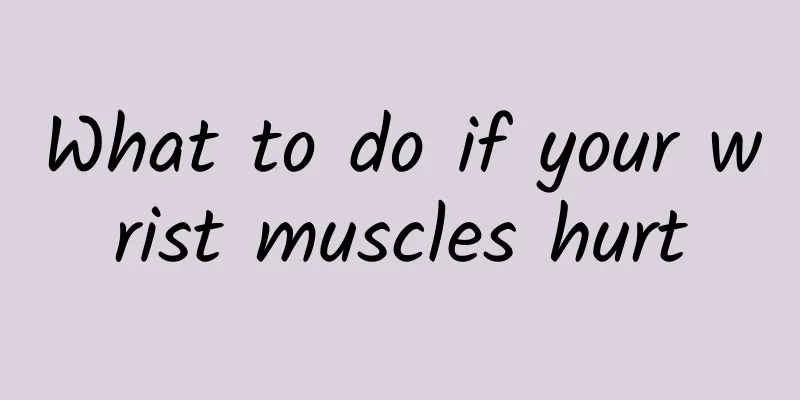What to do if you have appendicitis

|
Appendicitis is actually acute appendicitis. Appendicitis is a common disease. It causes serious harm to the patient's body, so we must pay attention to the prevention of appendicitis. Once we suffer from appendicitis, we must not only use drugs to treat appendicitis, but also do a good job of daily diet care. We must understand some knowledge about appendicitis, which will help us prevent and treat appendicitis. Appendicitis is prone to some complications, which is the most terrifying thing about it. Appendicitis can easily lead to symptoms such as peritonitis and intra-abdominal abscesses. Therefore, once we have symptoms of appendicitis, we must seek treatment as soon as possible. What to do if you have appendicitis 1. Non-surgical treatment When acute appendicitis is in the early simple inflammatory stage, once the inflammation is absorbed and subsides, the appendix can return to normal and will not recur. Therefore, the appendix does not need to be removed. Non-surgical treatment can be used to promote the early disappearance of appendicitis inflammation. When the diagnosis of acute appendicitis is clear and there are surgical indications, but the patient's physical condition or objective conditions do not allow it, non-surgical treatment can be adopted first to delay surgery. If acute appendicitis is combined with localized peritonitis and an inflammatory mass is formed, non-surgical treatment should also be used to allow the inflammatory mass to be absorbed before considering elective appendectomy. If the inflammatory mass turns into an abscess, it should be incised and drained first, followed by elective appendectomy. When the diagnosis of acute appendicitis has not been confirmed and needs to be observed, non-surgical treatment can be used while observing the changes in the condition. In addition, non-surgical treatment can also be used as preparation for appendectomy surgery. In short, non-surgical treatment has its important role. Nonsurgical treatments include: (1) General treatment: mainly bed rest, fasting, intravenous infusion of water, electrolytes and calories, etc. (2) Application of antibiotics: The application of antibiotics is very important in non-surgical treatment. The selection and dosage should be determined according to the specific circumstances. Most cases of appendicitis are mixed infections. In the past, penicillin and streptomycin were used together with satisfactory results. Later, it was found that the number of drug-resistant strains increased and the infection rate of anaerobic bacteria increased. Then the "Golden Triple" was used, namely ampicillin (ampicillin), gentamicin and metronidazole. It has a wide antibacterial coverage, is not expensive, and is highly praised. In recent years, new and highly effective antibiotics have emerged, and cephalosporins are constantly being updated. Therefore, cephalosporins or other new β-lactam antibiotics are often used in combination with metronidazole. (3) Use of analgesics: Pain relief is sometimes very necessary. Severe pain can increase mental terror, reduce the body's immune function, and thus weaken the patient's ability to fight disease. General painkillers sometimes cannot stop severe pain. The use of morphine-like drugs can be considered but must be used with caution. It can be used for patients who have decided to undergo surgery, but is contraindicated in general situations, especially for the weak. (4) Symptomatic treatment: such as sedation, antiemetic, and placement of a gastric decompression tube when necessary. 2. Surgical treatment In principle, acute appendicitis, except for the mucosal edema type which can be cured by conservative treatment, should be treated with appendectomy to remove the lesion to achieve the following: ① Rapid recovery; ②Prevent the occurrence of complications; ③ Good treatment results can be achieved for appendicitis that has already developed complications; ④ Remove lesions that may recur in the future; ⑤ Obtain correct pathological results. However, acute appendicitis is extremely complicated due to the severity of the disease, the time of visit to the hospital, the patient's age and physical strength, etc. Moreover, many diseases are sometimes difficult to distinguish from appendicitis. Therefore, the treatment should vary according to the disease, and surgery for "appendicitis" should never be performed hastily because it is a minor disease. The various complications caused by improper surgical operation account for 5% to 30%, and the mortality rate is also around 1%. If the appendix surgery is performed incorrectly due to misdiagnosis and the primary disease is aggravated, the risk will be even greater. Therefore, although the appendix is small, it must be taken seriously and not be neglected in the slightest. Above we introduced what appendicitis is. We know that the occurrence of appendicitis has a serious impact on our body. We must find a good way to treat appendicitis. Appendicitis is prone to some complications, so we must treat appendicitis as quickly and as early as possible. The treatment of appendicitis is described in detail above. |
>>: The effect of pepper water on hemorrhoids
Recommend
Can people eat Houttuynia cordata leaves?
Houttuynia cordata is a very common Chinese medic...
What should I do if my hands and feet are swollen?
Sometimes when we take off our shoes, we will fin...
What to do if a tumor grows in the heart
Cardiac tumors are relatively rare in clinical pr...
Breast pain and lumps before period
Women have to endure much more physical pain than...
I was caught off guard by the sudden stomachache, and this method of traditional Chinese medicine relieved it and I felt better immediately!
What to do if you have stomachache? Most patients...
How to promote bone growth, should start from childhood
Bone growth should start from infancy. There will...
What causes diarrhea after ejaculation?
Diarrhea after ejaculation is not particularly co...
How many days after miscarriage can a woman go out? What should I pay attention to?
Abortion is a heavy topic for female friends. It ...
What is the pain under the left ear?
There are many reasons for pain under the left ea...
How to quickly reduce swelling in feet
Many people will experience symptoms of swollen f...
How to urinate after cystectomy
After patients are diagnosed with bladder cancer,...
What causes anal itching?
Anal itching is a very common phenomenon and is a...
What is vasculitis? The cause and health care of vasculitis
Vasculitis is an inflammation of necrosis of endo...
What is demyelination of the white matter? Uncovering the cause
Many diseases can occur in the white matter of th...
The principle of eating ginger in the morning and radish in the evening
Although health programs have only become popular...









